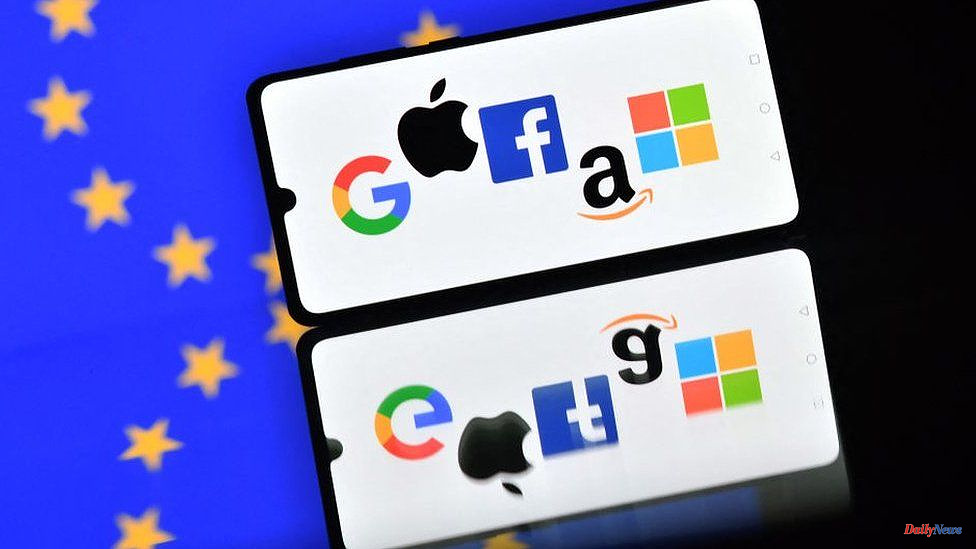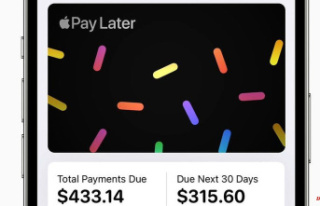Google and Meta are two of the largest tech companies in the world. They will need to act on deepfakes or fake accounts, or face huge fines.
Deepfakes are videos that use a person's likeness as a way to show them doing something they have never done.
The Digital Services Act (DSA) will support a new EU regulation that requires tech companies to deal with disinformation on their platforms.
If they don't comply, firms could be fined up 6% of their global turnover
The code is strengthened to stop disinformation and fake news from their platforms. It also increases transparency around political advertising and curbs the spread of 'new malign behaviours' like bots, fake accounts, and deepfakes.
Clubhouse, Google Meta, TikTok Twitter, Twitch and Meta are some of the 33 signatories for the enhanced code. They worked together to create the new rules.
Signing up for the code will force firms to share more information with EU. All signatories are required to submit initial reports about their implementation by 2023.
Every six months, platforms with more than 45 millions monthly active users in EU will be required to report to Commission.
Meta's president for global affairs Nick Clegg wrote on Twitter that "Combating misinformation is a complex, evolving societal problem."
"We invest heavily in technology and teams, and we look forward more collaboration to address it."
Twitter spokespersons said that the company welcomes the new code.
Twitter stated that it is committed to fighting misinformation and disinformation "through and beyond the Code" in a statement.
Google didn't respond to a request to comment.
Deepfakes are a new form of disinformation that is used to maliciously target celebrities, politicians, and everyday citizens.
They have been associated with pornography in recent years, with explicit material featuring the faces of people being mapped onto them.
Nina Schick, a deepfakes expert, says that non-consensual pornographic depthfakes are today's primary form of malicious deepfakery. This is evident in the cases of well-known people like Michelle Obama and Natalie Portman.
There have been concerns about deepfakes in the political sphere. Fake videos of world leaders were shared online during the Russia-Ukraine conflict.
"This new antidisinformation code comes at a moment when Russia is weaponising diinformation as part of their military aggression against Ukraine," Vera Jourova (Vice-President for Values and Transparency, European Commission), said. "But also when we see more attacks on democracy."
"We now have very important commitments to reduce disinformation online and more robust tools for measuring how these are implemented across all EU countries and all its languages."
According to Ms. Schick, the difficulty in discerning between fake footage and real footage will increase over time due to increased accessibility of apps and tools needed to create malicious deepfakes.
Deepfakes are a way for troublemakers to disinformation directly, but their presence on the internet is creating a climate of uncertainty that is open to manipulation.
To avoid accountability, those who want to hide genuine footage might dismiss it as fake.
This makes it more difficult for citizens to recognize genuine content and regulators and platforms alike to take action.
"You have this type of double-edged sword, everything can be faked and all can be denied," Ms Schick said.
Big Tech companies have been working hard to counter deepfakes in recent years. Meta and Microsoft were among the stakeholders that launched the Deepfake Detection Challenge, an AI research challenge for AI researchers, in 2019.
Ms. Schick states that platforms "too often resort to deepfakes to hide the fact they don't do enough on disinformation existing forms"
They aren't the most common or malicious forms disinformation, but there are many other forms that do more harm.
The revised EU code will require that relevant tech companies periodically review accounts involved in coordinated inauthentic behavior, including fake engagement, impersonation, and bot-driven amplification.
Ms. Schick says deepfakes can still be "the most potent form disinformation" online.
She says, "This technology will become increasingly common relatively quickly, so it is important to be on top of things."
The DSA, which was agreed on April by the European Parliament, EU member states, and other EU members, is the EU's planned regulation of illegal content, goods, and services online. It is based upon the principle that what is illegal offline should be made illegal online.
The DSA is expected to be in force in 2024. It will cover all online services in the EU. However, it will focus on Vlops (very large internet platforms such as YouTube and Facebook) and Vlosess (very large search engines such as Google). These are services with more than 45 million users in the EU.
It will serve as the legal instrument to support the new code on practice in disinformation. This is a bid for fake news and falsified images online.












